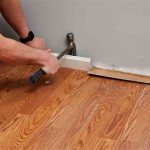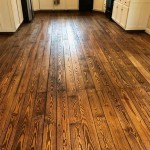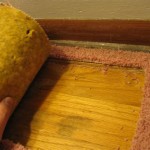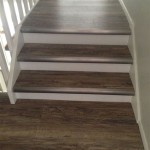Essential Aspects of Vinyl Flooring Thickness
When selecting vinyl flooring, its thickness should be a primary consideration alongside factors like durability, comfort, and overall performance. Vinyl flooring is available in various thicknesses that impact its structure, longevity, and suitability for specific areas. Understanding the ideal vinyl flooring thickness for each application will ensure a successful installation and optimal flooring performance.
Factors to Consider When Choosing Vinyl Flooring Thickness
Several factors should be taken into account when determining the best vinyl flooring thickness for your needs:
- Traffic Levels: High-traffic areas like kitchens, hallways, and entryways require thicker vinyl flooring (4mm to 8mm) for enhanced durability and resistance to wear and tear.
- Subfloor Condition: Uneven subfloors may necessitate thicker vinyl flooring (6mm to 8mm) to conceal imperfections and provide a stable surface.
- Room Type: Thicker vinyl flooring (4mm to 6mm) is suitable for bedrooms and living rooms where comfort and noise reduction are prioritized.
- Affordability: Thinner vinyl flooring (2mm to 4mm) offers a more budget-friendly option while still providing durability for low-traffic areas.
- Underlayment: The presence of an underlayment can compensate for thinner vinyl flooring and enhance comfort and soundproofing.
Standard Vinyl Flooring Thicknesses
Vinyl flooring is typically available in three standard thickness categories:
- 2mm to 4mm Thickness: Suitable for low-traffic areas like bedrooms and closets. It offers a budget-friendly option and can be installed over existing flooring.
- 4mm to 6mm Thickness: Ideal for medium-traffic areas like living rooms and dining rooms. It provides a balance between durability, comfort, and affordability.
- 6mm to 8mm Thickness: Recommended for high-traffic areas like kitchens, hallways, and entryways. It offers superior durability, can conceal subfloor imperfections, and provides enhanced noise reduction.
Additional Considerations
In addition to the factors mentioned above, consider these additional aspects when choosing vinyl flooring thickness:
- Wear Layer Thickness: The wear layer protects the vinyl flooring from scratches and wear. Thicker wear layers (12 mils or above) provide enhanced durability.
- Product Density: Higher density vinyl flooring is more durable and stable. Look for flooring with a density of 12 pounds per square foot or more.
- Installation Method: Self-adhesive vinyl flooring is thinner (2mm to 4mm) than loose-lay or click-lock types. Consider the installation method and compatibility with the subfloor.
Conclusion
Choosing the best vinyl flooring thickness involves considering factors such as traffic levels, subfloor condition, room type, affordability, and additional considerations. By carefully evaluating these aspects and understanding the standard vinyl flooring thicknesses, you can select the ideal flooring for your specific needs. Remember, a thicker vinyl flooring typically provides enhanced durability, comfort, and sound reduction, while thinner flooring offers affordability and ease of installation. With the right choice of thickness, your vinyl flooring will provide years of beauty and functionality.

Luxury Vinyl Flooring Lvt And Lvp Thickness Guide Wood Beyond Blog

Flooring Thickness Guide What Is The Best Vinyl Lx Hausys

Best Thickness For Your New Luxury Vinyl Plank Flooring

Flooring Thickness Guide What Is The Best Vinyl Lx Hausys

Is 5mm Lvt And Lvp A Good Thickness For Vinyl Flooring Wood Beyond Blog

What Thickness Of Vinyl Flooring Is Best The Guys

Vinyl Plank Wear Layers What Does A Layer Do Reallyfloors America S Est Hardwood Flooring

Is 5mm Lvt And Lvp A Good Thickness For Vinyl Flooring Wood Beyond Blog

Luxury Vinyl Flooring Explained San Diego Marble Tile

What S The Best Thickness For Vinyl Plank Flooring A Comprehensive Guide Emilio Tyler
See Also







